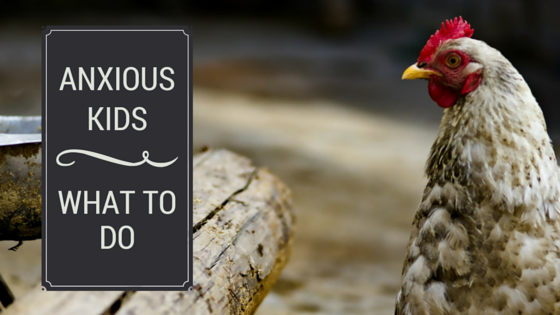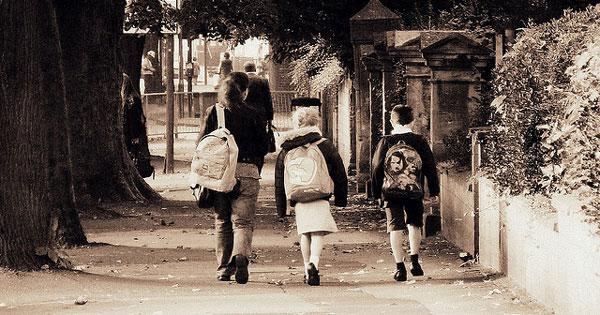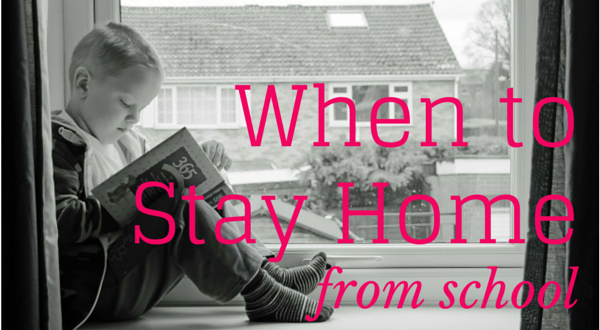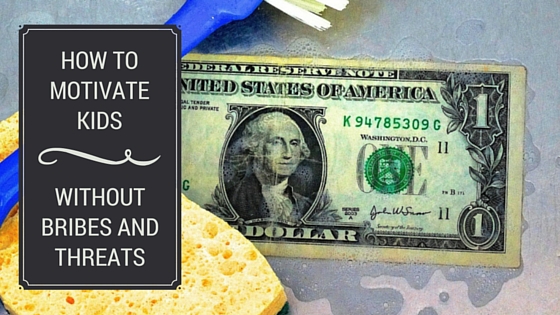We got this email recently asking for ideas about how to help a child with anxiety.
Dear Cecilia and Jason,
My 7 year old is in 1st grade. Although he was fine in kindergarten and the first half of 1st grade, something abruptly changed and he became very anxious about being left at school.
He would cling to me and sob when it was time for me to leave. We don’t feel comfortable rushing off.
So far what has been working is a gradual exit and a means for him to check in during the day (a phone call at lunch time to break up school day). There were a few really, really bad days that were heart-wrenching…. with him begging, pleading, screaming, clinging and me not being able to get away or meet his needs.
The only thing I can really pinpoint is that his best friend (his security blanket at school) had been absent for a week when it started (although he has been absent in the past), yet it has continued despite his buddy being back at school.
Thanks so much for your help!!!!
xoxo
“Kathi” (not her real name)
Ok, Kathi, this topic hits home for us because of all of our years in the classroom where we helped kids transition to school and feel good being part of the class. It is also a complex issue, but we will break things down into a few different principles that you can use with your son.
Here are our ideas:
1. Identify the “core issue”
Because he’s been ok with being dropped off for a year and a half, we wonder if his struggle is not really about being dropped off, but if there is something else underneath. What conversations have you had with him about this? What are his thoughts and ideas about what is happening for him?
- At a time–not during drop off–you could say, “You’ve been okay being at school for a year and a half, but now you don’t want me to leave you there, what’s up buddy?” or “We’ve had a few rough mornings and I need your help understanding what this is about, so that we can work on a solution together.”
- If he doesn’t have any ideas about what is going on then you can say, “If you tell me what is happening then I can help, otherwise I can only guess.” Or say, “I’ve noticed that this began when your friend Max was absent from school. Did that have anything to do with it?”
- Remember mostly your goal at this point is to listen. Find out what is real for him. Acknowledge his feelings and his experiences. Let him know that it makes sense that he feels the way that he feels.
2. Because your son is struggling at school—use his teacher as a resource.
(You’ve probably already done this.) Your son’s teacher is invaluable for giving you some perspective about:
- Where his anxiety might be coming from.
- What the rest of his day looks like (when you’re not there). Does he appear anxious or comfortable?
- Is he struggling academically in ways that might contribute to the issue?
- Besides drop off, has your son’s behavior changed during other parts of the day?
- If the issue is with friendship, the teacher can keep you updated on the changing social dynamics of the classroom and what typically happens when your son’s friend is absent.
- You can also ask how available the teacher or other staff members are during drop off times (and during the day) to support your son if he needs some extra hugs or help working out a friendship issue. If you and he know that there is an adult ready, willing, and available to help at school, then you both can be reassured. You’ll know that he’s not sitting in the corner crying by himself.
3. Be aware that your child will take cues from you.
We are social beings. Emotions are contagious. This is the part that’s about chickens you’ve been waiting for!
- Our chickens often over-react to things. If they are walking around in the backyard and my shadow comes close to them or if I hover over them, they crouch low to the ground or run away. Dr. Laurence Cohen—author of The Opposite of Worry — has a similar story about playing with his chickens as a kid. He’d lay two of his chickens on the ground and hover over them, being a “predator”. The chickens would lay there for a long time, each taking the cue from the other that it wasn’t safe to get up yet. But if he hovered over them when only one of the chickens was laying on the ground and the other was standing, the chicken would quickly hop up, taking the cue from the other that it was safe to walk around.
- If you’re feeling anxious about dropping off your son at school—so will he. If you’re thinking, “My child is much more sensitive than the other kids at school. He can’t do what they are doing. I’m nervous about him”, then your son will feel nervous and less capable. During your conversations with your son about school and drop off times, be in tune with your own feelings. Your child will pick up on your emotions and it will “contaminate” him—for better or for worse—even if you’re not saying out loud what you’re feeling.
- The solution: Do your own emotional work before talking to him. Do your journaling, talk to a trusted friend, and maybe even talking to the teacher, before talking with him, so that you can authentically express to him—through your words and actions—that you have confidence in his abilities.
4. Make a plan with him
After you and he have uncovered his “core issue”, make a plan with him about how he is going to do to resolve it. This is the fun, creative and collaborative part. He might even want to make several different plans—a “How I’m Going to Say Goodbye” Plan, a “What I’m Going to Do at School Today” Plan, a “When I Need Help” or a “When I Feel Sad” Plan, and a “Things I Can Do to Make Friends” Plan. If it’s a plan that involves the school, include his teachers in the planning process, so they know what’s happening and can support him. After each day review his plans, talk about how they worked and make adjustments as needed. Expect that things won’t go perfectly the first time; this will be a process of trial and error.
Lastly, we want to share a story. Years ago we had a girl in our classroom who, after years of being at school, developed some anxiety. It was almost the same exact situation your son is going through—changes in friendships, really tough mornings, plus some academic struggles and absences that compounded the problem. I’m happy to report that she did well because her family reached out to us, we worked as a team, we communicated frequently about how we could support her, her parents did their own emotional work, they arranged play dates and came up with creative solutions to support her socially and academically, and they trusted us, that we would help her with whatever emotions came up for her during the day at school.
We hope these stories and suggestions are helpful.
We hope for the same happy ending for you, Kathi, and your son.
Warmly,
Cecilia and Jason Hilkey









